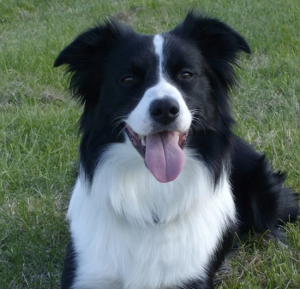Case Study - Oscar
Breed: Border Collie
From: West Lake Hills / Austin
As a seven month old Border Collie, Oscar had a lot of energy! Although his owners made sure to exercise him as much as they were able, they were noticing that he was becoming more and more wound-up and agitated. When other dogs would pass by his yard (normally on walks with their owners, but occasionally stray dogs would walk by as well), Oscar would race to the fence and put on a big display. In Oscar’s case, he was frustrated that he was unable to greet or play with the other Austin dogs, however his condition was also made worse by the fact that he had no real structure in his life. This lack of structure meant that once he started to get frustrated, his mindset just snowballed and he was starting to display overly territorial behavior.
Luckily, because he was only seven months old at the time, these newly developing patterns could be stopped in their tracks with relative ease. It is for this reason that we always recommend owners to contact us at the first sign of the problem. It is easier and faster to stop a habit which has been happening for a few months rather than years (although of course we do work with dogs who have longstanding bad habits as well).
Oscar was enrolled in one of our obedience and behavior solving packages. Our first focus was on training Oscar to respond to obedience commands. Being a Border Collie, he took to it enthusiastically and began both basic and advanced commands very quickly! Obedience training is important for all dogs, but this breed thrives on it. Besides teaching him commands, we were also beginning to establish structure in his life which is the basic building block to both communication and purpose. Taking a look at his previous exercise habits, we completely re-vamped how he would be exercised in the future. We introduced structured walks around Austin, as well as providing new rules for games of fetch and frisbee. Instead of building up mental momentum as he ran and played, he was actually able to burn off both the physical and mental energy. In the past, after a game of fetch he was even more hyper and stressed than before the game. Now, after a game of fetch he was relaxed and calm. This allowed both him and his owners to be in better, healthier states of mind.
Because he was taught obedience, he now understood what the word “no” meant, and was already getting better about rushing the fence when other dogs walked by… but there was still work to do. We brought in Connor, one of The Academic Hound’s pack dogs, in order to teach Oscar how to socialize politely with other dogs. We also began to teach Oscar alternate behaviors to rushing the fence that would benefit him more, such as coming when called when a dog would walk by the fence. Because Oscar loved obedience training so much, and wanted desperately to have a job to do, this alternate behavior served him better than barking at the other dog and getting corrected.
By the end of training, Oscar was no longer in a neurotic state of mind. Instead, he was in a much more stable place psychologically. Most importantly, he had a job to do which kept both himself and his owners very happy!

